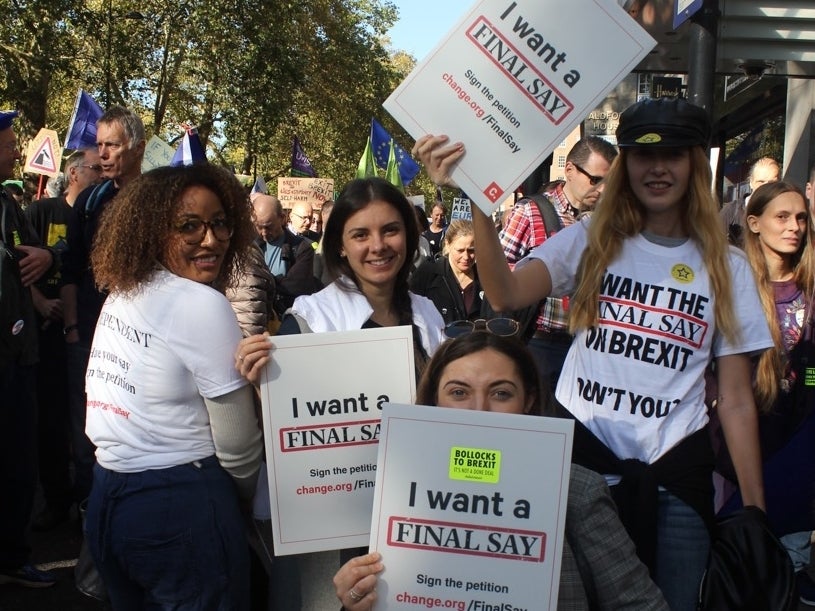What would happen if a second Brexit referendum delivered another Leave vote?
Analysis: Amid so much political confusion a second referendum would help clarify what voters want to happen, whatever its outcome, as Ben Kentish explains


The crushing defeat that MPs inflicted on Theresa May‘s Brexit deal this week prompted renewed calls for the public to be given the opportunity to help break the deadlock in parliament.
Supporters of a fresh Brexit referendum insist it is the best way of resolving how Britain leaves the EU – or indeed whether it should do so at all.
Some Independent readers have asked what would happen if a second referendum delivered another Leave vote. How would that solve anything? Would it not require a fresh set of negotiations with the EU, therefore taking Britain back to square one?
The short answer is: no, it wouldn’t. A second referendum would ask a different question to that posed in the 2016 vote, and the outcome would thus almost certainly be much clearer and more straightforward for the government to implement.
The sort of referendum being proposed by advocates of a “people’s vote” would be likely see voters asked to choose between very specific outcomes, rather than a simple expression of will like the 2016 vote, which asked simply whether or not the public wanted the UK to leave the EU.
Instead of just asking voters if they wanted to leave the EU, it would probably present them with two possible ways of doing so, along with the option of remaining in the bloc.
While there is much debate about the exact question that should be asked, a second referendum would probably give voters the choice between leaving the EU on the terms of the deal agreed by the government, leaving with no deal at all, or overturning the result of the 2016 vote and agreeing to stay in the EU.
If people again voted to leave, there would be no need for further negotiations: either the UK would simply leave the EU in line with the deal already agreed with Brussels, or it would crash out without an agreement. The public would have given the government a mandate not just for leaving the EU, but also for how they wanted to do so.
If, on the other hand, voters decided to back Remain, the government could simply revoke Article 50, as European courts have ruled it has the right to do, and that would be it: Britain would stay in the EU.
The intention of a second referendum would thus be to give a clear instruction as to the specifc course of action that the public wanted the government to take. That is why a growing number of MPs believe it is the best way to break the deadlock in parliament.
They say that, while the first referendum gave the government a mandate to negotiate the terms of Britain’s withdrawal from the EU, a second would allow voters to decide whether or not they wanted to go ahead with that decision, knowing much more about what it would mean, and if so on what terms.
Got an unanswered question about Brexit? Send it to editor@independent.co.uk and we’ll do our best to supply an answer in our Brexit Explained series.
Join our commenting forum
Join thought-provoking conversations, follow other Independent readers and see their replies
Comments